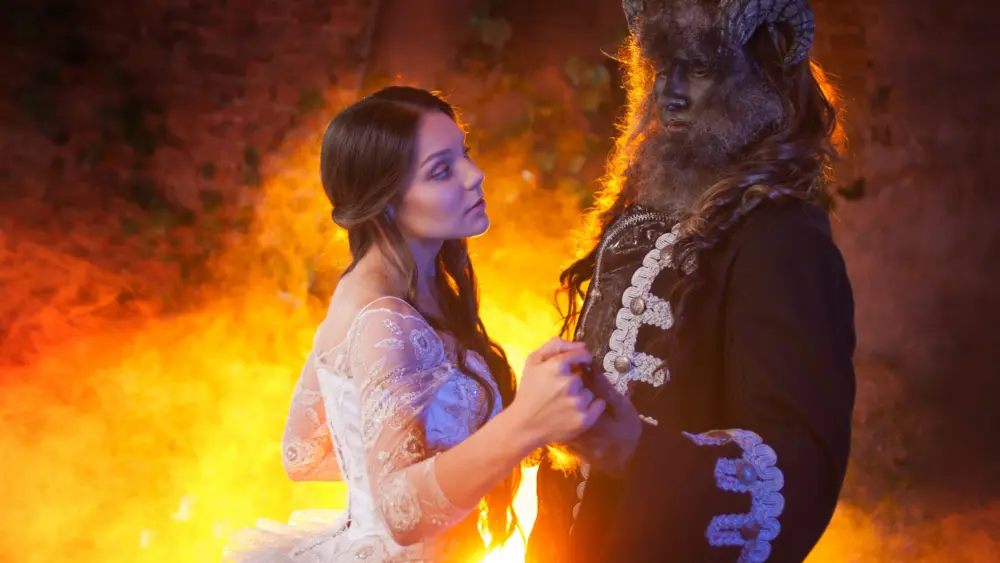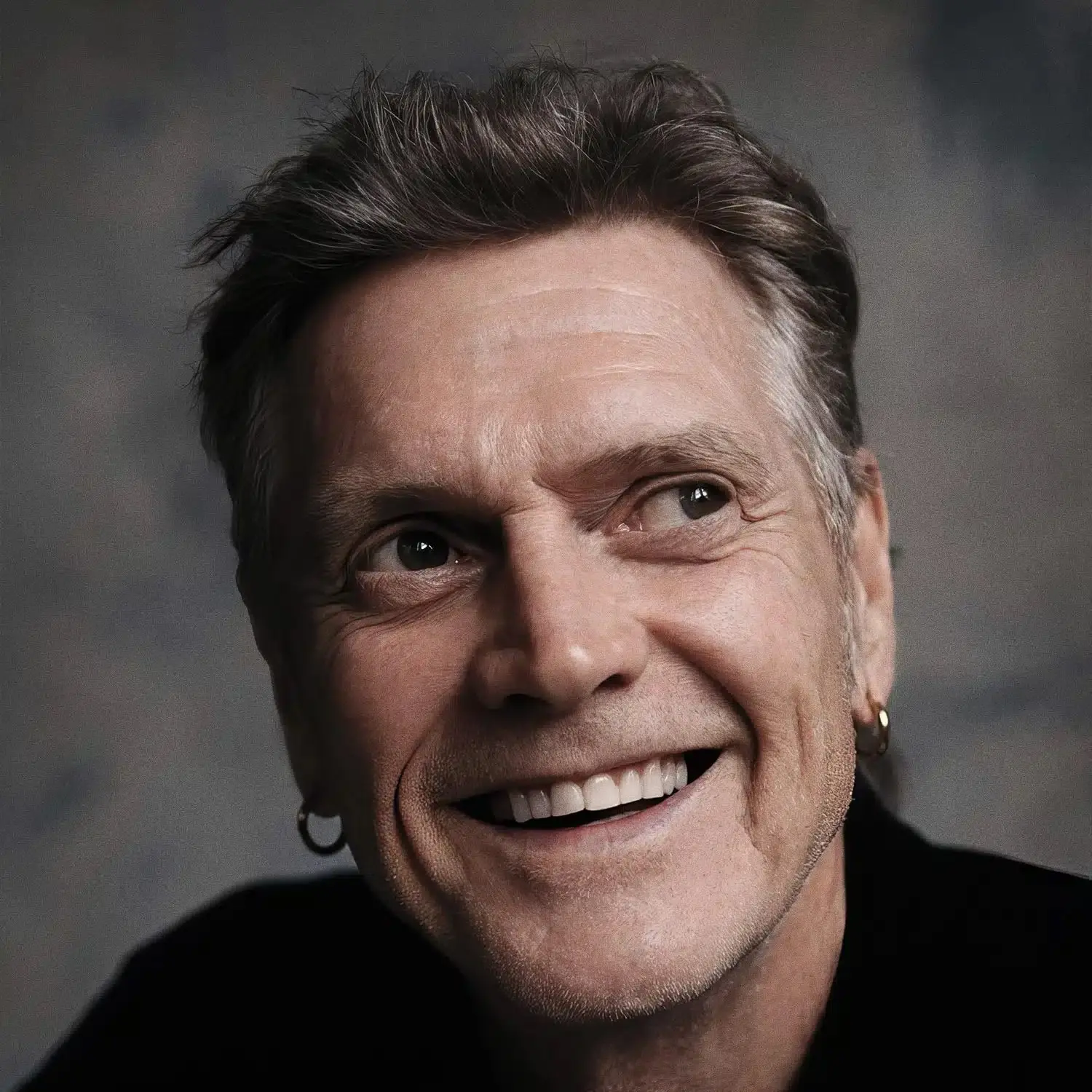
Def Leppard drummer Rick Allen is keynote speaker at the First Responders Resiliency Gala, Nov. 1 in Rohnert Park.
Following the 2017 wildfires, thousands of North Bay residents owed a debt of thanks to first responders.
Rick Allen understands that gratitude toward first responders. He owes them his life.
Allen is renowned as the Rock and Roll Hall of Fame drummer for Def Leppard—the Sheffield, England-born band that launched in the late 1970s as darlings of heavy metal’s “new wave” and went on to release a string of best-selling albums throughout the 1980s and ‘90s. Their string of hits includes “Photograph,” “Foolin’,” “Rock of Ages,” “Hysteria,” “Animal,” “Pour Some Sugar on Me,” “Let’s Get Rocked,” among others staples of classic rock radio.
Def Leppard’s rise to rock royalty out of a working-class Yorkshire city known for its steel industry and mushy peas was unexpected in itself. Even more unexpected was Allen’s personal rise from tragedy to triumph—a journey that brings him full circle Nov. 1 to Rohnert Park where he’ll speak out for the health of first responders at the annual gala for North Bay nonprofit First Responders Resiliency, Inc.
Because if it wasn’t for the rapid response of a few dedicated lifesavers on a New Year’s Eve nearly 40 years ago, Allen might not be here to tell the tale.
On Dec. 31 of 1984, Allen and his girlfriend Miriam Barendsen were on an afternoon drive through the Yorkshire countryside. The band’s third album, 1983’s Pyromania, had gone multi-platinum on the strength of several songs in heavy rotation on MTV and rock radio, pitting Def Leppard on the cusp of international superstardom.
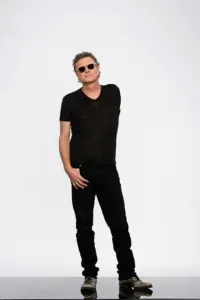
Rick Allen was on top of the world. But in the blink of an eye his world turned upside down.
While trying to pass an aggressively driving Alfa Romeo, Allen lost control of his Corvette, sending the vehicle careening into a stone wall, throwing him more than 100 feet into a field—and severing his left arm, which was caught in the seatbelt strap. (Barendsen was slightly injured, but able to come to Allen’s aid.)
As fate would have it, among the first people to arrive at the scene were an off-duty policeman, as well as an off-duty nurse, both of whom happened to be in the vicinity when the crash occurred. “There’s no such thing as an off duty first-responder—it’s the way they’re wired,” Allen told NBb recently. “If they see a situation in which they could help, they automatically do. It’s part of their DNA.
“I was one of those fortunate recipients of two incredible angels on earth.”
The quick arrival of first responders to the scene saved Allen’s life—icing his severed arm and stabilizing him long enough to get to a hospital before blood loss became life threatening. After an initially successful surgical reattachment, his arm suffered an infection and was amputated. In 1985 the concept of a professional drummer with only one arm was unheard of, especially in a hard-driving rock band. On the brink of becoming one of the biggest bands in the world, it was roundly assumed Def Leppard would have to carry on with a different drummer.
The rest of the story is music lore. In a show of steadfast friendship and loyalty, the band stuck with Allen. While the drummer learned to play solely as a righty, engineers developed a custom kit that could be played with a single arm and feet. More than two-and-a-half years after the crash that took their drummer’s left arm, Def Leppard released the follow-up to Pyromania—that album, Hysteria, would reach No. 1 on Billboard’s album chart, producing seven hit singles and selling more than 20 million copies. Today, nearly five decades since forming, Def Leppard maintains an active touring schedule and a rabid fan base. In 2022, the band released its 12th studio album, Diamond Star Halos, and another is hopeful to drop in 2026.
In 2001, Allen and spouse Lauren Monroe, a musician and healing arts educator, launched the Raven Drum Foundation, with a mission to bring together musicians, health educators and the philanthropic community to support the healing of first responders and veterans struggling with post-traumatic stress. Statistics show first responders face significantly higher rates of substance abuse, divorce and chronic illness than the general population. They’re even more likely to die by suicide than in the line of duty.
To support wellness, the Raven Foundation hosts drumming workshops, integrating such mind and body techniques as breathwork, visualization and heart-brain coherence education. It’s through Raven Drum and its healing circles that Allen and Monroe joined forces with First Responders Resiliency, the Cotati-based nonprofit formed by former first responder Susan Farren in the wake of the wildfires in 2018 with a mission to “put PTSD out of business.”
Allen and Monroe will serve as keynote speakers at the First Responders Resiliency fundraising gala, Nov. 1 from 5:30 to 9 p.m. at Sally Tomatoes event center in Rohnert Park. (It’s also Allen’s birthday that day.) For tickets and info, check out resiliency1st.org/event/responder-resiliency-gala.
NorthBay biz recently spoke with Rick Allen about his support for North Bay first responders and his nearly 50-year legacy with Def Leppard.
****
You became familiar with First Responders Resiliency through Raven Drum’s support for first responders and victims of the Tubbs Fire. And that began in 2023 with a partnership to hold drumming events at Chateau Diana Winery near Healdsburg?
I met [Chateau Diana owner] Cory Manning through Todd Sucherman, drummer with the band Styx. Cory was taking drum lessons and we got to learn about what he went through in the Tubbs Fire and how his relationship developed with First Responders [Resiliency]. And that’s really where the connection with Raven Drum came in, and when we got to meet Susan Farren.
And you’re now one of the nonprofit’s most ardent supporters.
Now we’re kind of locked in. We love coming to the area. We see this incredible need. Fire season doesn’t get any shorter. It’s more random these days. We really see the trauma in our first responders and between Raven Drum and First Responders Resiliency we’re creating healthy individuals coming to a scene.
Because the last thing someone in crisis needs is a first responder also in crisis.
It’s your worst day—and what if the first responder is in a bad way themselves? You want that person to take command and control of the situation. That’s really what this is all about. Creating comprehensive programs for our first responders so they can remain [at their best].
Healthy first responders at the scene are critical. And so is healthy support during recovery. Did you have that following your accident?
The amount of outreach and people who sent letters, my family, people around me, friends, the band. It allowed me to find a part of myself that I never tapped into before.
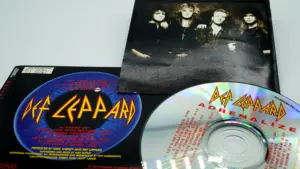
Def Leppard was the first band I got into as a kid. I was 12 and can remember where I was in my house when I heard on the radio about your accident.
It was because of people like you that helped me find the power of the human spirit.
You’ve said before that, in losing your arm, you’ve gained a lot as well. Can you expand on that?
People say, “Would you have done things differently?” In many ways going through what I went through—extreme trauma—it has elevated my life experience. More empathy toward others—just a general feeling of wanting to help people.
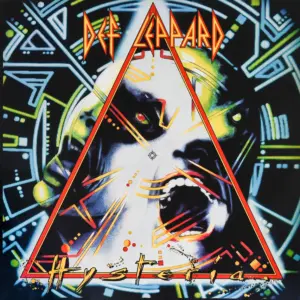
You make a point of referring to Post Traumatic Stress as PTS—no “D.” No “disorder.”
I’m glad you call it PTS. It’s something we can help. PTS has changed in terms of terminology. PTS Growth is a good one. I like the fact that you can reframe it. They once called it “soldier syndrome.” This sort of deregulation of the nervous system. Science has caught up. It understands the mechanisms that put [a person at risk].
Even before your accident, Def Leppard had touched on “soldier syndrome” in songs like “Die Hard the Hunter,” about a Vietnam vet beset by the trauma of the war.
That was what we were going for. We touched on it quite a bit over the years.
There’s nothing more critical during an emergency than physically and mentally healthy first responders. The people who came to your rescue in 1984 are examples of that—and they’ve got a great story as well.
The really interesting thing about first responders is they’re a different breed. The two people that first came on the scene when I had my accident—Eileen was a nurse and Roger was a cop and the two of them were off duty. There’s no such thing as an off-duty first responder. It’s the way they’re wired. If they see a situation which they could help, they automatically do. It’s part of their DNA. I was one of those fortunate recipients of two incredible angels on earth. It became a beautiful love story. They became a couple and ended up getting married—it’s such a beautiful story. To this day I keep in touch with them.
It must be gratifying to be able to give back to first responders after all that’s happened.
Because of my experience, it’s very symbolic. [We work with] first responders all over the country. Any of those folks I’m sitting in front of could be Eileen or Roger. Because I live here in the state, you gravitate the path of least resistance, helping people here in California where I live. We’re affiliated with many organizations, but the one close to our heart is here in California.

Talk about the effectiveness of drum circles in mitigating PTS. The data shows significant reductions in anxiety and depression among participants.
Drumming is such an ancient form. Around for thousands of years. Drumming or expression of dance or ritual. That’s in our DNA. We can’t get away from that. It’s part of our ancient past. Standing around a fire in mourning or celebrating, it seems drumming was a way to celebrate or otherwise.
Speaking of high-octane careers that are known to take their toll on physical health and personal lives—does being a busy touring musician still come with high levels of pressure and anxiety?
It’s part of being an adrenaline junky. The difference in my situation is that I understand my own anxiety before I play. These days I really have to give it up to higher power and trust that everything is going to work out. As soon as I count the band in for that first song, time becomes so condensed. A 90-minute show feels like about 15 minutes. Once you’re on, everything falls into place. It becomes this open-eyed meditation. I call it the zone. The problem [for people suffering from extreme anxiety] is when you think you’re managing the trauma but, in reality, you’re not—and the people around you will see the vulnerabilities. Susan [Farren] says—you can’t read the label from inside the jar. They’re the people we really want to help.
Ozzy Osbourne was instrumental in Def Leppard’s early success, bringing you guys on as the opening act for the American leg of his Blizzard of Ozz tour in 1981. What are your memories of Ozzy?
Ozzy influenced a lot of people, inspired a lot of people. He was a wild man. Between him and Sharon they really embraced Def Leppard. Took us out in ‘81 on the Blizzard of Oz tour—what an education. It was pretty amazing. Just very thankful to them for embracing us and taking us under their wing. My brother worked for Def Leppard and then left in ‘84 just before my accident and, through his dealing with Def Leppard, he ended up tour managing Ozzy Osbourne. I visited them a few times in England. We got to know Ozzy, good and bad. He could be a wild man, but what an incredible career. It was just so sad he went through that concert [Black Sabbath’s final show, “Back to the Beginning,” on July 5, 2025]—and then weeks later he was gone. Maybe he needed some sort of closure.
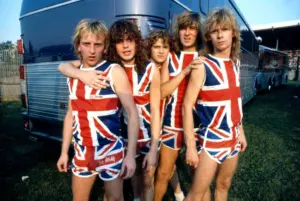
Good question. I know what [Charlie Watts] means when he said it’s a job. In many respects it is. There are rules around what’s expected of me and the high standard I hold for myself. As a team, we’re unstoppable. I have a certain standard and refuse to drop below that standard. Every single person who comes to a Def Leppard show is in for a treat and they deserve that. My behavior should not have any bearing on my position as an active member of the band.
Has the job gotten easier or harder?
We’ve got all the wisdom of playing all these years. There was room for some craziness in the early days, but now we have this legacy we want to maintain. It begs for people to keep coming back. We take a lot of pride in how much work we put into this—the most important thing is to maintain the standard. The Stones keep raising the bar. They’re 20 years older than us. We have no room for any complaints.
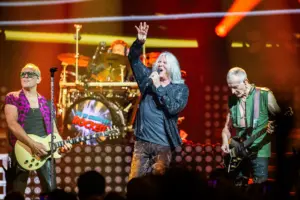
You turn 62 next month. It seems one of the band’s most well-known choruses—“rock of ages, still rollin,’ keep a-rollin’”—has played out.
My daughter is about the age I was when I embarked upon a most incredible career. I guess kids were different back then. I know what I wanted to do and wasn’t bogged down in technology. I try to convey to kids these days what it was like to grow up without technology and actually hang out with real people. Dronfield [Allen’s hometown in Derbyshire] was a nice, soft landing to grow up in. Dirt bikes and playing soccer with friends. It rained a lot in England. And to think, all these bands that came from a tiny little island.
First Responders Resiliency Gala
Help “put PTSD out of business” at the annual First Responders Resiliency Gala, a celebration of community and the vital mission of supporting those who serve. The event is Nov. 1 from 5:30 to 9 p.m. at Sally Tomatoes event center, 1500 Valley House Drive in Rohnert Park. Attendees will have a chance to bid on a signed Def Leppard guitar, donated by legendary drummer Rick Allen—exclusively auctioned off at the gala. Keynote speakers at the event include Rick Allen, drummer of Def Leppard, and Lauren Monroe, co-founder of Raven Drum Foundation and VIP Experience. General admission is $125. For more information, visit resiliency1st.org, call 707-625-0636 or email register@resiliency1st.org.
Raven Drum Foundation
Raven Drum Foundation was born in 2001 from the idea that powerful healing comes from mindful experiences of learning and community interaction. As the foundation says at its website: “Our experience shows us that when music, intention and healing wisdom all meet on the path of evidence-based science and psychology we can harmonize our inner mental and emotional states to effect positive change in all states of wellness and disease.”
Since launching, the foundation has served nearly 50,000 people, around half coming from the military community. Raven Drum has allocated funds to 14 nonprofits that support veterans and first responders.
Raven Drum hosts drum circles which provide skills and methods to navigate physical and emotional symptoms of trauma, anxiety, pain and isolation. “Drum circles are a place to heal,” the foundation says at ravendrumfoundation.org. “When we come into one, we enter a sacred place as a community without judgment and mistrust, with respect and compassion to heal one another and bring into focus the possibilities of who we truly are.”
For information on upcoming events, visit ravendrumfoundation.org. Those who can’t attend an event, can instead donate to purchase a seat for a first responder or veteran.


